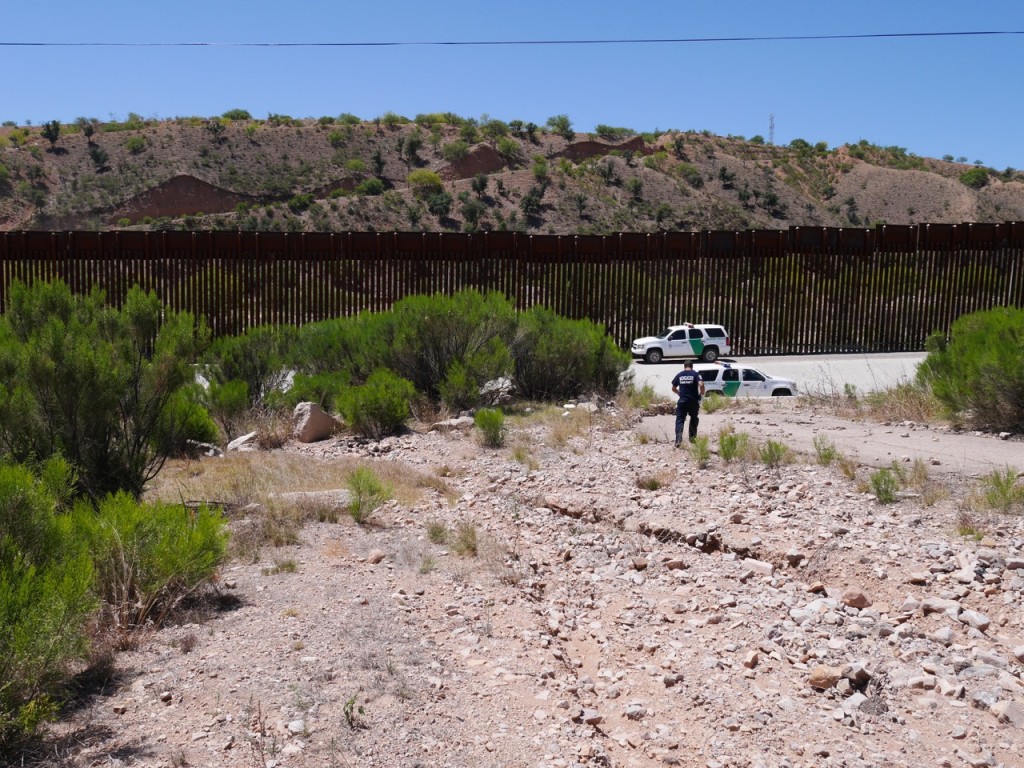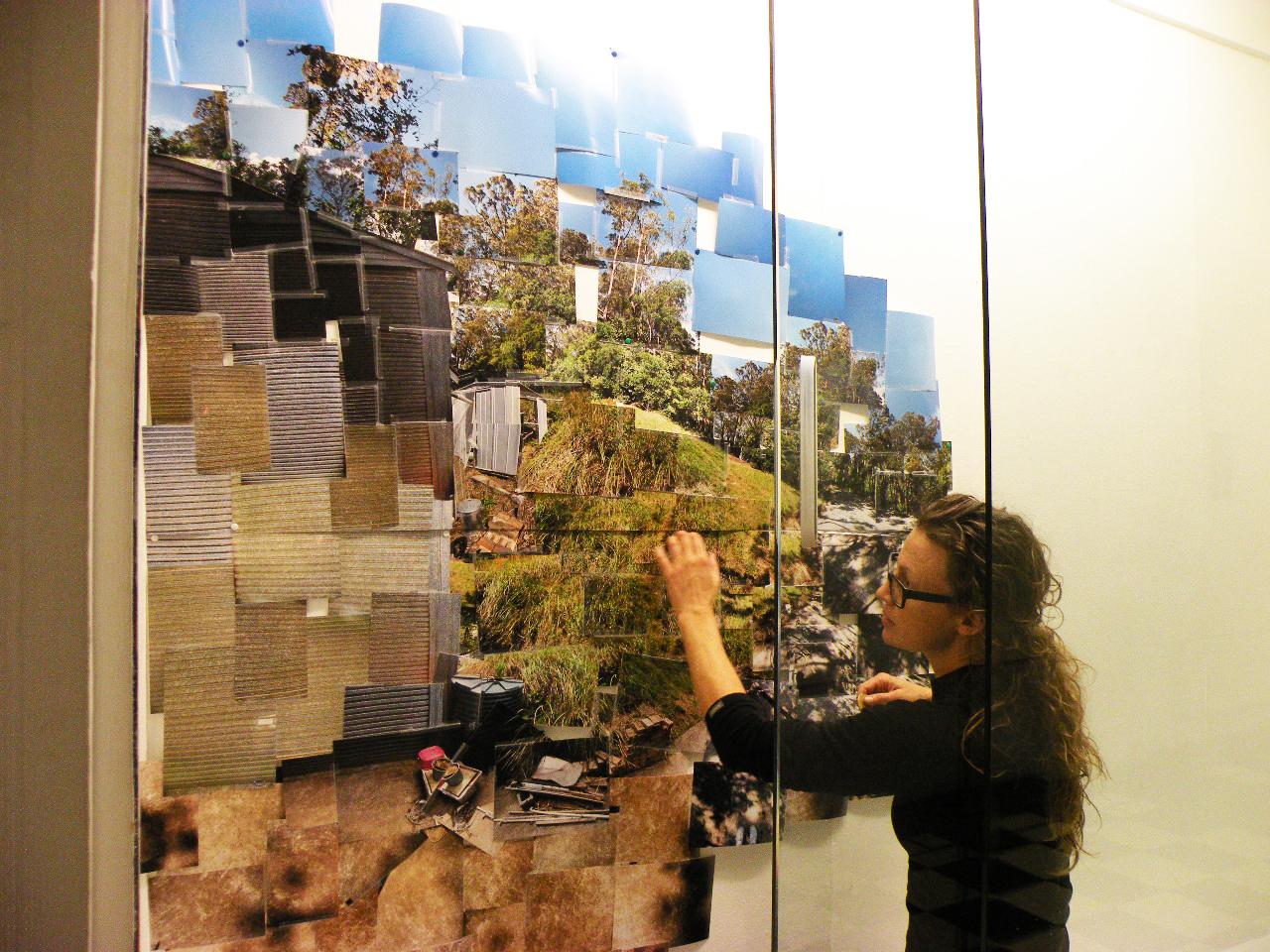[Savage Minds is pleased to run this essay by guest author Ieva Jusionyte as part of our Writers’ Workshop series. Ieva is Assistant Professor of Anthropology and Latin American Studies at the University of Florida. She is the author of Savage Frontier: Making News and Security on the Argentine Border (University of California Press, 2015). Ieva is currently conducting fieldwork for a new project about emergency services on the U.S.-Mexico border, funded by NSF and the Wenner-Gren Foundation.]
This morning, as I am sitting down to write this blog entry in my rental apartment in Nogales, I peer through the window: The sun has illuminated the dark brown border wall that coils over the hilly landscape and reminds me of the spiked back of a stegosaurus. Six months ago I arrived in Southern Arizona to begin fieldwork with firefighters and paramedics for a new ethnographic project about emergency responders on both sides of the line, as the international boundary which abruptly separates Mexico and the United States is locally called. Though ethnographic fieldwork takes many forms – I am conducting interviews, participating in the daily activities at the firehouse, volunteering at a first aid station for migrants, teaching prehospital emergency care at a local fire district, and engaging with the first responder communities in Arizona and Sonora in multiple other ways – my primary activity continues to be writing.
I have always been a morning writer. When I was working on the manuscript of my first book, Savage Frontier: Making News and Security on the Argentine Border (University of California Press 2015), I would shut the doors of my childhood bedroom at my parents’ house in the forested suburbs of Vilnius, Lithuania, where I was fortunate to spend my research leave, and would sit at my large desk, facing the barren trees outside, until noontime. I did it every day of the week for several months during a long and cold winter. The manuscript was complete and sent off to my editor on the eve of spring.

But during fieldwork keeping a regular writing routine has been difficult. The topic of our research inevitably shapes how, where and what we write, and my study of fire and rescue services under heightened border security is no exception. Often I spend the entire day on shift with the crew at the fire station, riding along with them to the scenes of emergencies. Other days there is training, community events, long drives to do interviews at more remote fire districts. Having a background in both journalism and in anthropology affects how I go about conducting research. Instead of dividing my time into chunks for doing fieldwork and writing up fieldnotes, I tend to pursue the story as far as it takes me before I finally sit down to reflect on the new material. I think of it as combining the in-depth view of an anthropologist with the fervor of an investigative journalist. It can be exhausting. Continue reading

